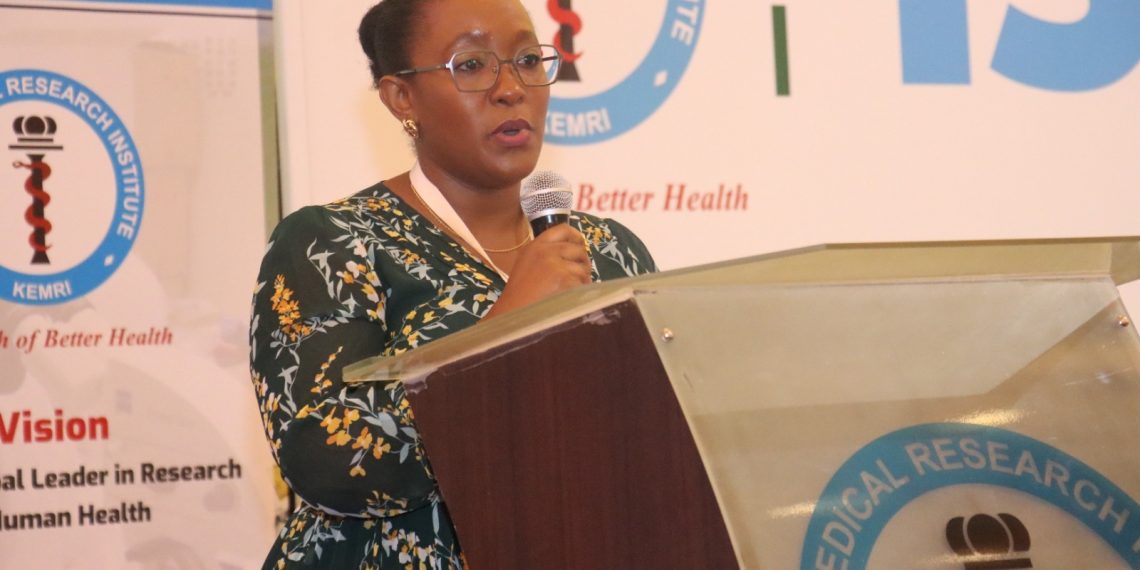Kenya is on the brink of a transformative shift in cancer treatment with the unveiling of precision medicine as a key strategic initiative by the Kenya Medical Research Institute (KEMRI).
This landmark development, introduced at the 15th KEMRI Annual Scientific and Health Conference (KASH), is set to position the country at the forefront of targeted therapy, enhancing patient care and improving health outcomes.
Kenya has long battled both communicable and non-communicable diseases, with cancer emerging as a significant public health concern while traditionally treatment has followed the ‘one-size-fits-all’ approach, the use of precision medicine through targeted treatment promises much better outcomes.
Speaking at the 15th KEMRI Annual Scientific and Health conference (KASH), Dr Hellena Musau a clinical oncologist and interim Chair of The Kenya Society of Hematology and Oncology (KESHO) underscored the potential of precision medicine in revolutionizing cancer care.
“Traditionally, we’ve used a one-size-fits-all approach to treatment However, people respond to medication differently Precision medicine allows us to tailor treatments based on an individual’s genetic makeup, environment, and other factors that influence their response to care.”
Kenya, like many low- and middle-income countries, has faced significant challenges in cancer treatment. Most available data and treatments are designed for Western populations, leaving African patients reliant on medications that may not be tailored to their genetic makeup.
This mismatch leads to suboptimal treatment outcomes and precision medicine seeks to remedy that by improving drug efficacy, reducing side effects, and ultimately increasing survival rates.
“Many patients return to hospitals repeatedly because standard treatments do not work for them. In chemotherapy, for example, most of the drugs used are tested in Western populations and are not necessarily tailored to African genetic profiles.” Dr Musau explained.
To address this, she emphasized the importance of understanding local genetic variations, “Precision medicine enables us to study how our populations respond to treatment by analyzing DNA, genetic predispositions, and environmental factors. This helps us understand why some people do not respond to certain drugs or develop resistance.”
To support this innovative approach, the conference also marked the unveiling of the Precision Medicine Kenya’s Committee of Experts – Think Tank, a structured platform for thought leadership, collaboration, and policy discourse. This initiative will drive collaboration among researchers, healthcare practitioners, and policymakers to ensure precision medicine becomes an integral part of Kenya’s healthcare system.
Speaking at the KASH opening ceremony, Dr. Abdullahi Ali, Chairman of the KEMRI Board of Directors, emphasized the importance of this initiative in positioning Kenya as a leader in advanced medical research. “This landmark development will propel Kenya to the forefront of targeted therapy, fostering research and clinical applications that enhance patient care,” he stated.
Despite these promising advancements, implementing precision medicine on a national scale remains a challenge. Kenya is currently implementing precision medicine, but not in a widespread or systematic manner. One of the biggest challenges is the gap between research and clinical practice.
Researchers may identify a promising molecule or treatment tailored to a specific population, but doctors often lack access to this data. This disconnect means that healthcare providers prescribe treatments without personalized insights into a patient’s genetic predisposition.
Beyond cancer, precision medicine has already been applied in various other fields, including rare genetic disorders, infectious diseases, and non-communicable diseases such as diabetes.
Researchers called for collaboration to advance research for precision medicine in the country by leveraging public private partnerships that could plug existing gaps by expanding access to molecular testing and treatment.
“One opportunity for advancing precision medicine in oncology is investing in local research.” Dr Musau noted, “We need to work with institutions such as KEMRI to study the genetic mutations present in Kenyan populations. This information is currently lacking, and understanding it will help us develop better treatment strategies.”













